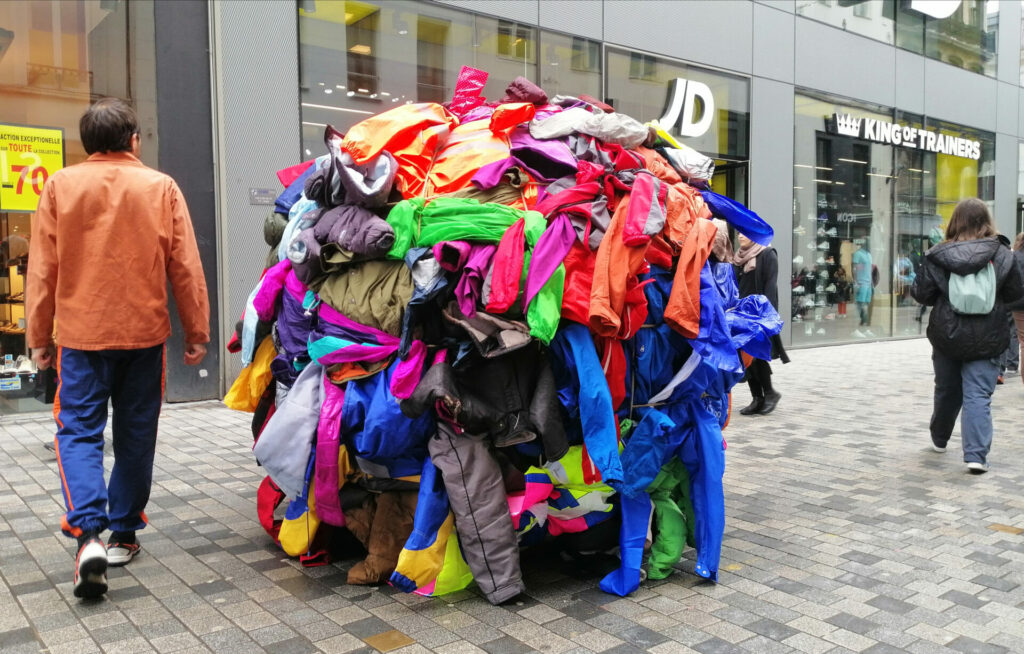Protestors rolled down a large ball of clothes along Rue Neuve in Brussels – Belgium's main shopping street – on Monday to symbolise the destructive impact of fast fashion to mark the 10th anniversary of the Rana Plaza disaster in Bangladesh.
On 24 April 2013, the eight-storey Rana Plaza garment factory collapsed on thousands of seamstresses in Dhaka, the capital of Bangladesh, taking the lives of 1,138 people and injuring over 2,500.
While at the time this caused widespread alarm and resulted in efforts being made to increase the safety of such factories in Bangladesh, real structural change in the textile industry has failed to materialise, as many brands and fashion companies, including world-famous jeans brand Levi's, still refuse to commit to improving working conditions of thousands of workers.
"The disaster came as a shock to thousands of people (...) who saw the images circulating and realised the conditions millions had to work in," explained Sanna Abdessalem, spokesperson for the consumer-labourer activist group achACT.
"Ten years later, Bangladeshi factories are safer, but millions of workers still face extreme working conditions."

Activists gathered on Place de la Monnaie. Sign reads 1,138 workers died due to the collapse of Rana Plaza. Credit: Belga/ Gabriel Mitran
To call attention to this, achACT and Clean Clothes Campaign created a large ball of clothes which was rolled past several clothes shops on the Brussels shopping street Rue Neuve on Monday, where many fast-fashion stores are located.
The ball came to a halt in the Place de la Monnaie, where about 100 activists gathered for speeches and a moment of remembrance.
Political action needed
On Tuesday, one day after the ten-year anniversary, the European Parliament is discussing a directive to end daily violations of human, social and environmental rights, across all sectors ahead of a decisive vote in plenary at the end of May.
However, activists have argued that the draft directive is currently "too weak to guarantee respect" for human, social and environmental rights in international value chains.
Civil society is therefore calling on policymakers in Europe and Belgium for strong political action on corporate social and environmental responsibility and to adopt more ambitious legislation that could prevent disasters like Rana Plaza.
Related News
- Cycling firm Specialized faces protests in Belgium over unpaid wages and severance
- Ten unusual initiatives to tackle the waste problem
- Free online returns are costing the Earth, study confirms
"A decade after the deadliest disaster in the garment sector, progress in the garment sector is very meagre," the activists noted, adding that the fast fashion model remains based on production at rock bottom prices, while wages remain far below subsistence levels.
In Bangladesh, activists also took to the streets, commemorating the victims and demanding justice, chanting "Ten years later, but what happened to the killers." The protesters included survivors of the disaster with amputated limbs.
While unions in the country acknowledge the progress made on safety, they too were criticising the slow judicial process, for example against the owner of Rana Plaza.

